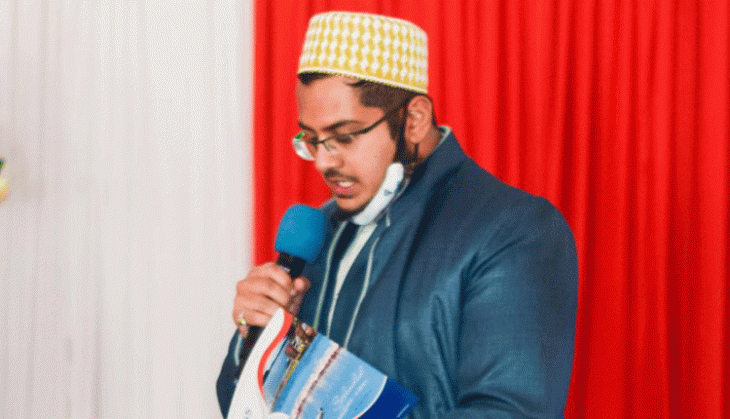Ours was a tribute to the city, Moiz Hassanali

Briefly what is your firm all about?
Kings Developers Limited (KDL) is part of the Royal Group of Companies, a group with companies diversified in a wide range of business activities ranging from construction, imports, glass and hardware, retail, distribution and fleet business.
It was formed in 2009 to be a leader in every market we serve by providing customers with quality products and extending exceptional services coupled with excellent value for money.
What went behind the scenes in the conceptualisation of Prism Towers?
Nairobi has been recognised globally as a business and development hub on the African continent.
Its strategic location and breathtaking scenery make Nairobi a jewel, which provides the inspiration for design and architecture across the region.
Working hand-in- hand with the government’s 2030 vision of affordable housing, KDL saw the need for a Class A commercial buildings due to the increase in interest by corporate clientele.
KDL came up with the idea of putting up a five star corporate business tower in Nairobi.
As a tribute to this magnificent city, featuring a vertical pattern of canted triangular faces, the building is described as a “jewel” which yields a “spectrum of vivid colors.”
Prism Towers unique design was created to have the latest world-class amenities that makes it an architectural masterpiece that would forever shaped the Nairobi skyline.
What has been the role of Kings Developers in the affordable housing agenda?
KDL has an interest in the noble course of improving the living standards of Kenyans through the development of appropriate and affordable housing units.
We are Kenyans and believe in giving back to the society and what better way to do that than by supporting the president’s agenda as well as being able to create affordable homes so that fellow Kenyans can own it?
In this regard KDL is developing two housing projects that meet the requirements of affordable housing: Kings Serenity in Ongata Rongai for 734 units and Kings Sapphire in Nakuru for 605 units.
In the era of Covid 19 pandemic, how have you remained afloat?
Organisational agility was once desirable, but is now central to business survival. So in this pandemic, we capitalised on each other’s strengths and flexibility. Nothing is written on stone: schedules were adjusted.
We embraced technology more into our business. Having virtual tours and showings to minimise on crowds and meetings.
Digitisation should not be seen as an acceptable solution to a problem, but rather grounds to change the business model creatively for the better One thing for certain is that during the pandemic a positive attitude and an open mind are essential.
Keeping yourself up to date with current affairs lets you in on how markets and consumer habits are evolving and thus, you adjust your policies.
For example giving out flexible payment plans to our clients and cooperation with previously unlikely partners proves a more effective means to generate collective new gains.
How did your business model evolve during the pandemic?
It will be quite some time before we understand the full impact of the pandemic.
But the history of such shocks tells us two things. First, even in severe economic downturns and recessions, some companies are able to gain advantage.
Second, crises produce not just a plethora of temporary changes (mainly short-term shifts in demand) but some lasting ones.
Companies seeking to emerge from the crisis in a stronger position must develop a systematic understanding of changing habits.
In the wake of Covid-19, a top priority for many companies has been to address talent questions, including how to optimise hybrid teams, attract and retain workers with needed capabilities, and make the most of scarce skills.
As a developer, what challenges have your faced?
Covid-19 has caused unprecedented disruption to the economy over the past few months.
The immediate impact on the sector has been: reduction of the labour force and disruption of supply chains, which is expected to translate to longer development periods; a slowdown in building approvals; and reduced construction activities by developers in a bid to reserve their cash at a time when market liquidity is likely to decline.
In the residential sector, it has resulted in lower rents and prices. Such decline in income will ultimately lead to homebuyers and renters having lower funds to spend on their monthly housing costs.
We expect occupancy rates and uptake to record flat growth, largely attributable to restrictions on individual contact or movement during this pandemic.
In the office sector, buildings’ occupancies are set to decline as companies resort to make working remotely a permanent feature.
The market turbulence will see businesses scaling down operations and might, therefore, lead to increased vacancy rates in the near term.
It has also seen firms put on hold expansion as they adopt a wait and see approach, leading to a drop in office space demand.
What are some the challenges the industry real estate sector is facing?
We would love conversations about home ownership and leasing and renting property and office spaces to be broad. Like have more discussions on real estate with the masses.
There is so much information for the masses to know, but the outlets and the platforms aren’t that many.
We try to play our part, organise for forums, and churn out information, but conversations about this industry aren’t that many.
Are financiers part of the problems the developers face?
We cannot speak for all developers because every business is different. Their business model is different.
The biggest problem will always be inability to scale your business and lack of growth indicators and how to manage them.
If you are unable to scale your business, even if you bring a financier or partners on board, you are going to have a problem at the end of the day.
However, our business model is that we do not borrow money from financiers; we fund our projects.
As a developer, do you envisage different home designs post Covid-19?
I cannot say so. Here is why: we have been in the real estate business for over 15 years now, and we are now on our 30th project.
To have such a solid foundation, you require consistency and your own identity, which we have maintained. The secret is to know the need before the consumer is even aware of it.












